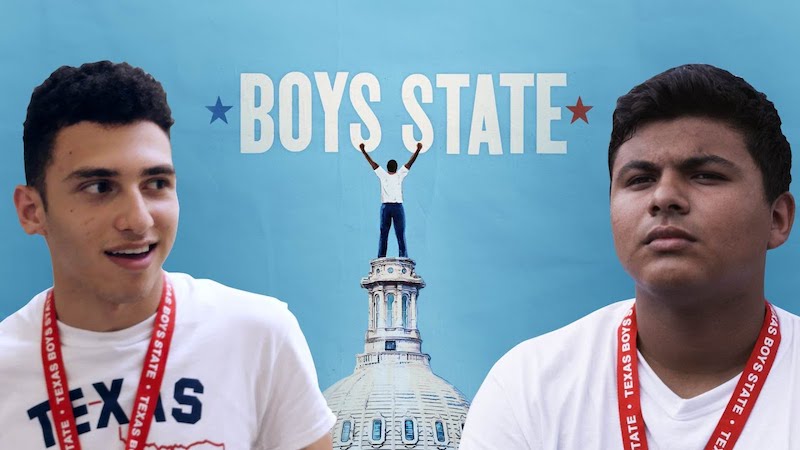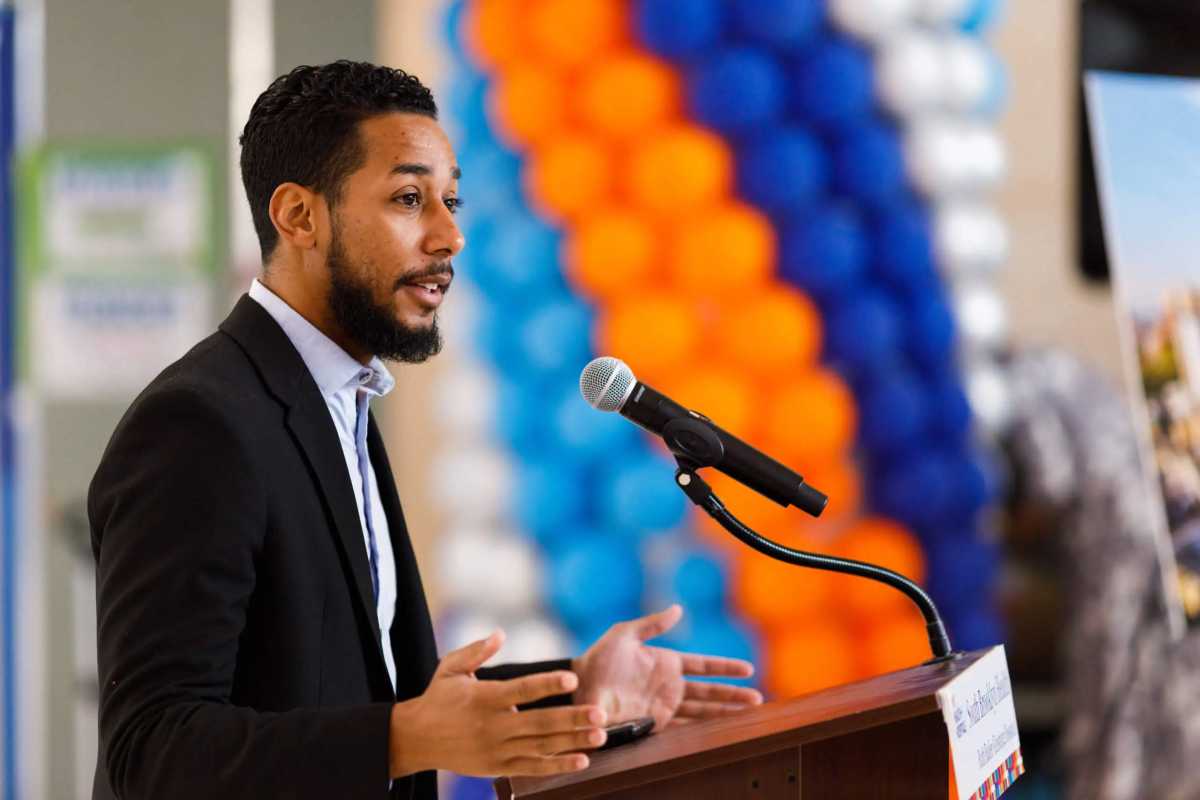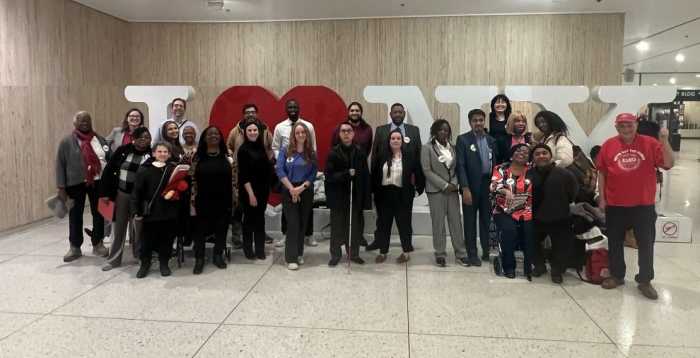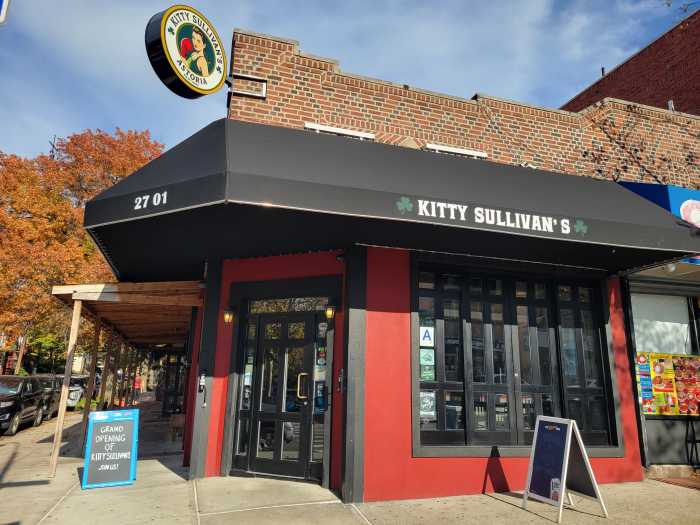Friends, Brooklynites, countrymen, and city gals, lend me your ears!
Boys State is a documentary about an all-teenage, all-male political camp in Austin, Texas directed and produced by Jesse Moss and Amanda McBaine that premiered back in January at the Sundance Film Festival and won the Sundance U.S. Documentary Grand Jury Prize.
It is based on an American Legion program started in 1935, in which both high school boys [and girls] in separate programs participate in a week-long exercise in self-governance using the political system on the state government level.
High school students are accepted into the program, where they are split into two parties that run political campaigns for several positions, including the top spot of Governor. Among the alumni of the program are former President Bill Clinton, U.S. Sen. Cory Booker, former Vice President Dick Cheney and radio personality Rush Limbaugh. There is a reason why former President Barack Obama is tweeting about it being one of his favorite films of 2020.
My first thoughts were why isn’t there a Girls/Boys State film if there is a Boys and Girls State program in most states, but, I’m female, so I had to take note of those “perceived biases” pretty early on in watching this. I’ve never pledged a sorority. I’ve never even been to a summer camp. My version of camp was visiting my dad for three months or driving up and down the east coast with my mom, which explains why even the first 10 minutes of this film hit so many notes of discomfort and intrigue.
It features five diverse, presumably 17-year-old main participants, named Robert, Ben, Steven, René, and Eddy as they enter the prestigious camp and run for ‘offices’ within their fictitious state, the highest being Governor. Two of the participants are people of color, two immigrants, and the rest able-bodied, except one who is a proud amputee.
The entire boys camp from the beginning is separated into two parties: the federalists (Feds) and the nationalists (Nats). Robert, Steven, and René were dubbed nationalists while Ben and Eddy were federalists.
In the context of the film, the federalist boys were clearly the more conservative party while the nationalist boys were more liberal in their views concerning Texas politics.
The film shows René’s tumultuous run and almost removal from the Nat State Chairman position, Steven’s timid yet defining bid for Nat Governor, Rob’s complete missteps in his campaign for Nat Governor, Ben’s sweep as Fed State Chairman, and then his and Eddy’s dynamic duo in their gubernatorial race, before each party goes head to head in the exciting and tear-jerking general election.
The film explored their relationships as they debated real and modern-day topics such as secession, abortion, gun rights, school shootings, racism, impeachment, political subterfuge, and immigration.
For the record, I’m from New York and have lived in the northeast all my life so I’m cool with acknowledging that I know next to nothing about Texas culture outside of King of the Hill references and bumper slogans about food and guns. Watching this made me feel like a complete outsider beaming into another world to see how their soup gets made. Much like René, the Black left-leaning liberal of the bunch, I was momentarily convinced that the movie would be draped in an indoctrinated Americanism that might make me uncomfortable. All boys, who were majority white Texans, all perfectly aligned while sitting or standing, all wearing the same white T-shirts is a call back to world war propaganda or the clan that I really didn’t want to have to sit through for almost two hours.
Thankfully, it wasn’t that.
I’m glad that also like René, with a jug of water and tiny glasses precariously perched on his nose, I stowed some of the attitudes I felt watching the movie to make it to the end. The boys aren’t edited to be stereotypical or unchanging in their views. They are confident, loud, but they also have quiet doubts and moments of vulnerability in their beliefs. Above all, they demonstrate a level of respect for each other when some camp members don’t.
A scene where a candidate screams about protecting the infringements on masculinity or attacks another with anti-Black memes on Instagram is given its moment in the film not to be glossed over but, I think, to underscore its gravity. Ben, as a fiercely competitive Fed strategist, faces off with the moderate and steadfast Nat René in a way that mirrors Republicans and Democrats down to the stances exactly.
Despite its release date this August, the film was made before buzzwords like ‘pandemic’ or ‘social justice crisis’ became every single household problem across the globe. So it’s surprising that in this completely sanitized and boiled down world of political rivalry among children, these boys’ experiences are a reflection of everything that’s flared up and ripped our society apart this past year.
However, as it is hilariously pointed out in the film, at the end of the day, this is still just a group of at times rowdy adolescent teens from different backgrounds. They are invested in the political machine and love politics, but plenty of them aren’t opposed to turning mock legislation into jokes or napping on the Senate floor throughout the summer. There are cutaways to talent shows, band practice, and the sports jocks running laps that are so reminiscent of high school, pre-COVID and social distancing, that it’s almost heartbreaking.
Sometimes the clash between this silliness and severity is refreshing and helps move the documentary along with an air of hope for the future of American democracy rather than let the audience stagnate in its more unsavory and confrontational moments. It’s also just nice to see young people form friendships and try at something that matters to them.
Overall, I’d give Boys State a three thumbs up and important viewing for anybody that wants an understanding of how American politics works.










